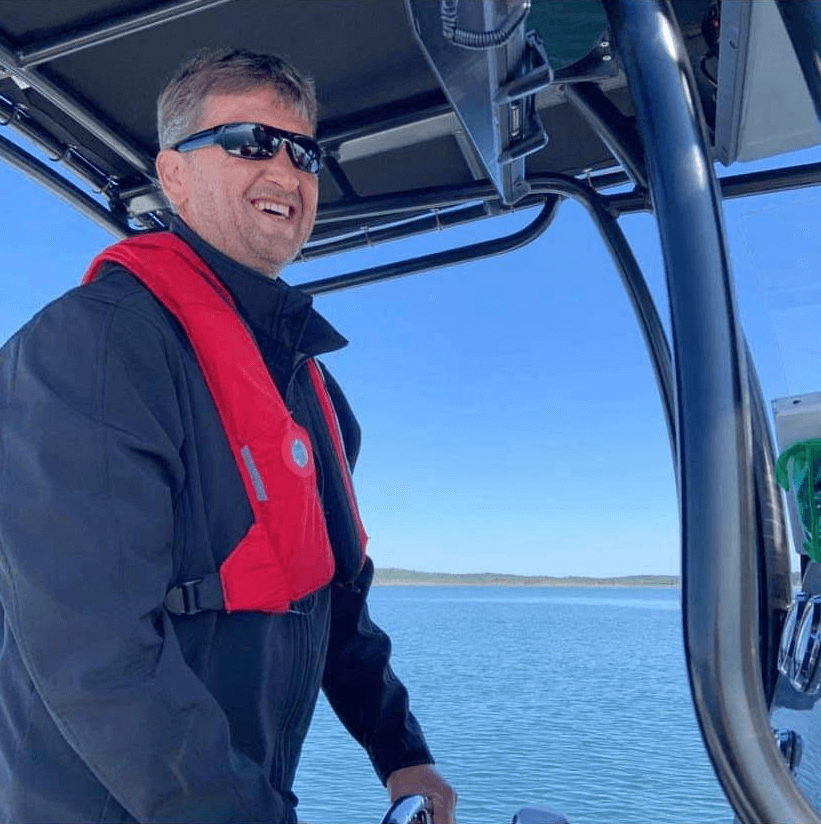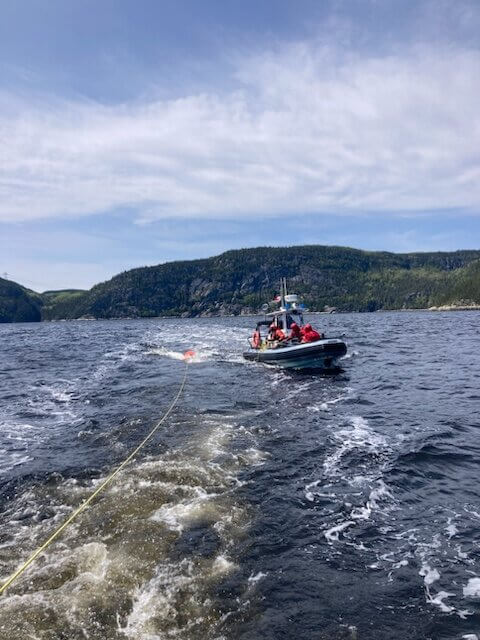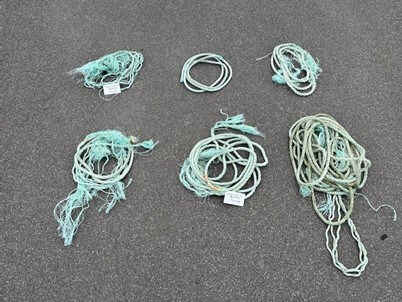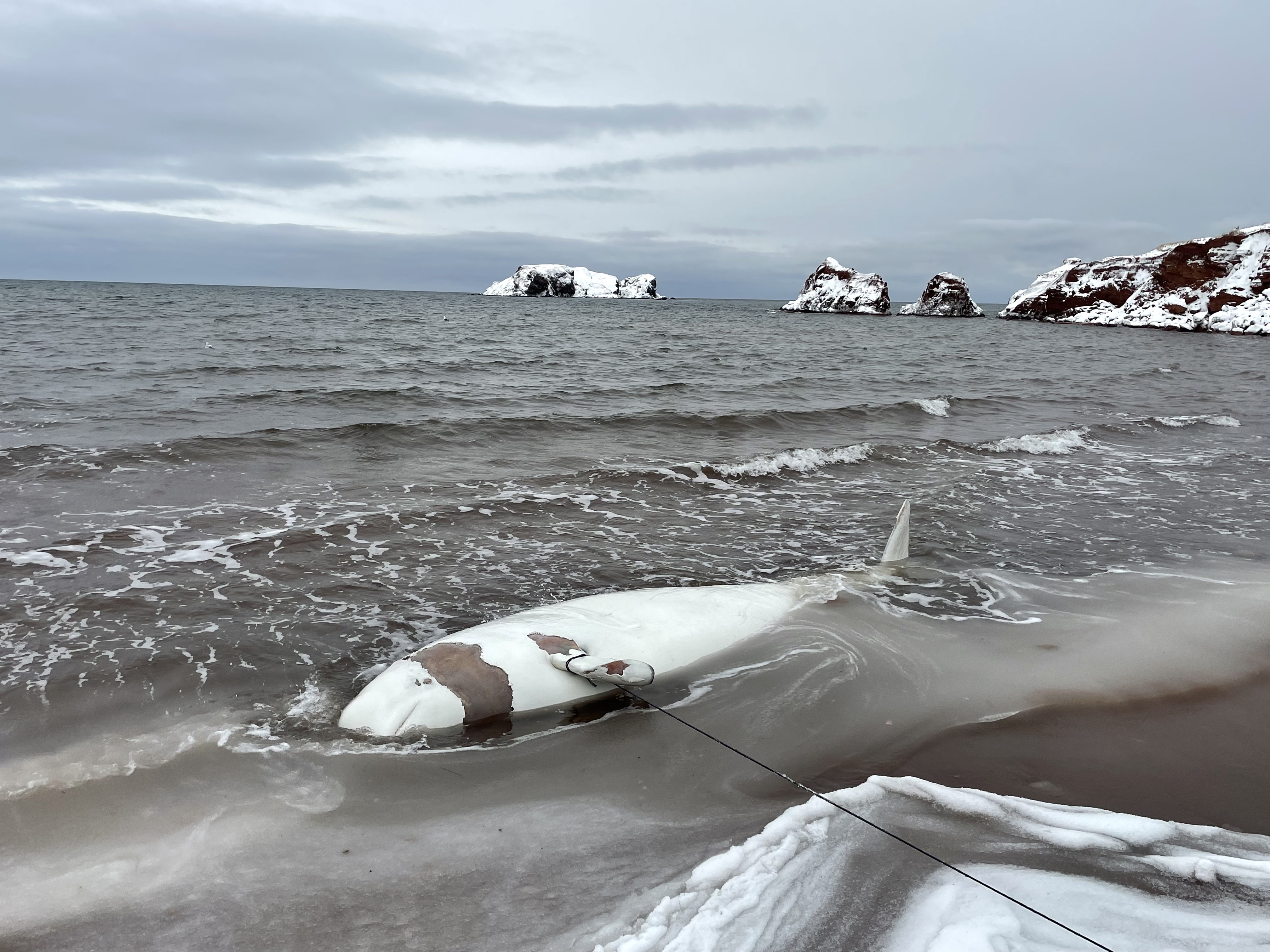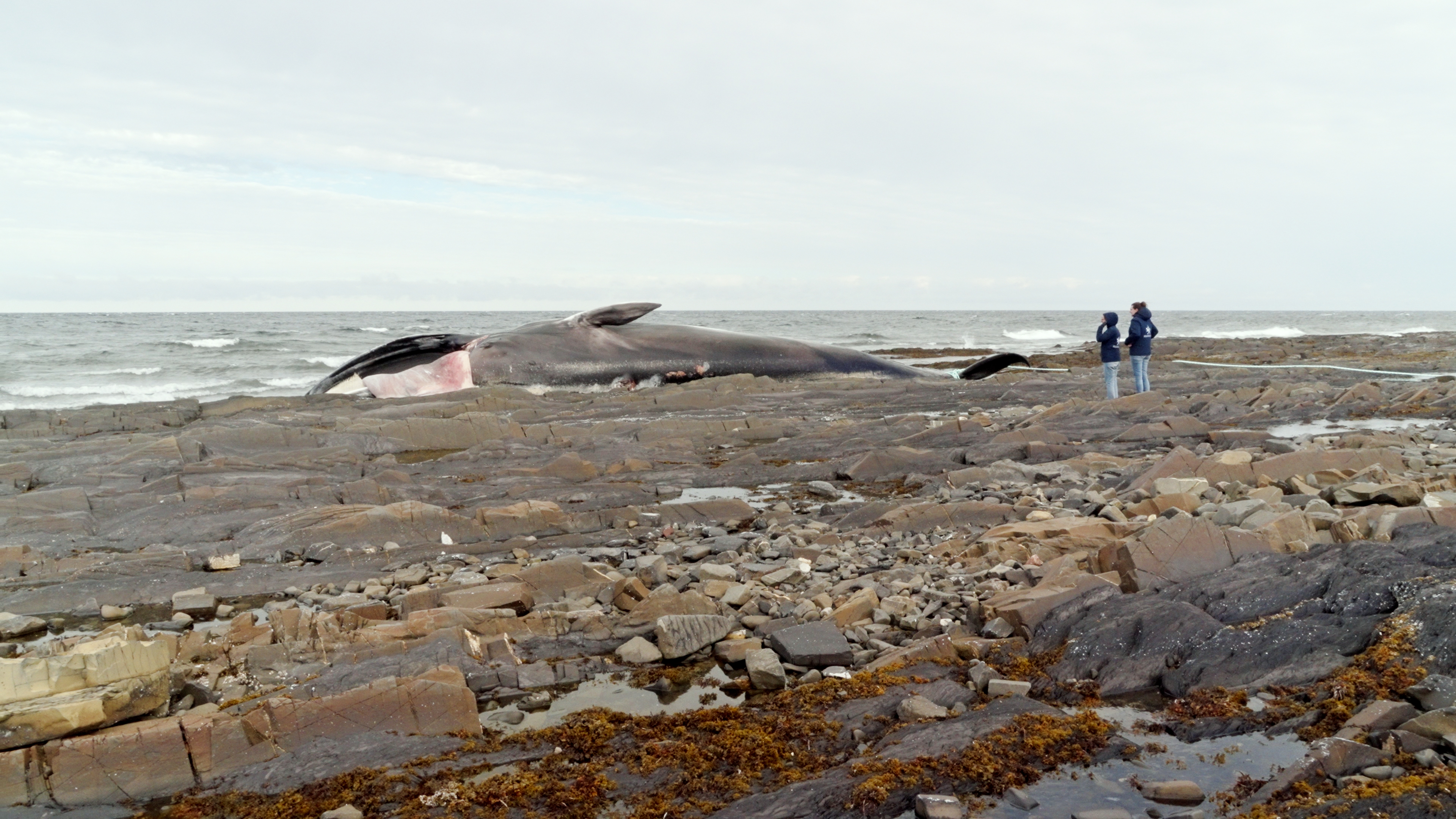Mackie Greene is one of the co-founders of the Campobello Whale Rescue Teams in New Brunswick and recently took part in the disentanglement of a young right whale (calf of #1812 born in 2023) in the St. Lawrence Estuary on July 10, 2024.
Tell us a bit about your background.
I grew up on Campobello Island in the bay of Fundy. Surrounded by water, and raised in a fishing village, my dream was always to become a fisherman and to be out on the water. I got my first boat when I was 13 and caught the fishing bug. When I was old enough to buy a commercial boat and start my dream job, the big fisheries collapsed. I knew I still wanted to be on the water and, as luck would have it, the whale-watching industry was just starting at the same time. There was only one other whale-watching boat at the time. I worked in that industry for 26 years.
The whole rescue thing started when we had entangled whales in our waters but no one to take care of them. So some of us whale-watching captains and fishermen went out to try and help. We didn’t have much luck, but that’s where it all began. We started working with Fisheries and Oceans Canada, who got us the proper tools and a rescue craft. Being fishermen, we are used to the marine environment and we know how to deal with lines under strain. And in the summer, by watching whales, we learned about their behaviour. It turned out to be a good fit and in the end we had some success untangling whales.
What does a typical day look like for you?
Most days are spent in the office waiting for the call, which usually comes at the worst time! Most days, however, are spent sitting around and maintaining gear. When we are not out on a mission, we have our outreach and training programs. We also promote various types of ropeless gear so that it gets out there and the fisherman can use it. Right now, we’re training a team in Shippagan, but the problem is that it takes time to gain experience. We’re also working with a team in the estuary [Quebec Marine Mammal Emergency Response Network, or QMMERN]. We’re trying to expand our network to get out there and respond faster. It might take a few years though, but we’re working towards something great that might make the rest of the world jealous.
When we do get the call, if it’s local, we launch the boat from Campobello and head out to try to find the whale. Recently, a lot of the calls have been from the Gulf of St. Lawrence in Quebec. So that takes about a day’s worth of travel. Every disentanglement is different, so it’s hard to say what we’ll need to do when we get there. A lot of it involves grappling the trailing lines where we’ll add big balloons to try to tire the whale out. This can take hours. We use long poles with hooked knives that we use to hook the lines and cut the whales free. It’s funny, but to save whales, we have to use old whaling techniques.
I don’t think people actually realize how hard this job is. You’re out on the water, up close to the whale, you’re bothering them and they are trying to get away from you as fast as they can. All the while, you have a long pole with a knife at the end and a boat being bashed by the waves. It’s very tough and dangerous, you have to work as a team to keep everyone safe.
What do you like about whales?
I’m always in awe when I see such large creatures. They are so powerful, yet they have not one ounce of aggression in them. These are wild creatures, the largest ones out there, and you’re in their environment, but you don’t have to be afraid of them. They just pop up and you watch them. But everything about them is amazing. The way they feed, swim, chase fish… It’s all pretty amazing.
After years on the water with them, you create bonds of respect and friendship with certain individuals. Some of the whales come back year after year. You get to watch them grow up and they also recognize certain boats. It’s like old friends coming back just to say hi. They are such intelligent and fascinating creatures. And for the fisherman in me, when I get to free a whale from its ropes, it’s like catching the biggest fish in the world! It’s thrilling.
Can you tell us an anecdote from the job?
Holy cow! I have so many stories to tell that I don’t even know what to say! It’s been amazing to be able to see the change in attitudes towards whales. Maybe because of our outreach programs or because they are so often in the news, but the fishermen are now able to identify the different whale species. It’s no longer “small whale” or “big whale”, they can say what kind of whale it is. Even in the whale-watching industry, there’s more respect for the whales. People are keeping their distance and not harassing them like they used to. I think that as people get to know them, they may care about them more. This relationship we have with whales will be important for the future of disentanglement efforts.
There are also highs and lows to the job for sure. For me, the most memorable moment of any operation is when we manage to free a whale. There’s a sense of pride and achievement when you see the whale swim free. I like to say that you feel so good that you don’t run home! I feel like this is my way of giving back to the water, and in the end, I’ve even found my dream job.


